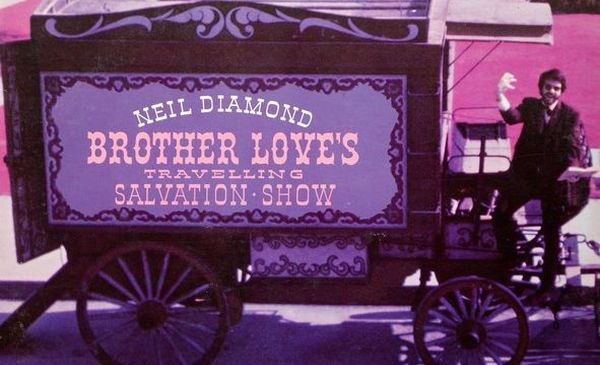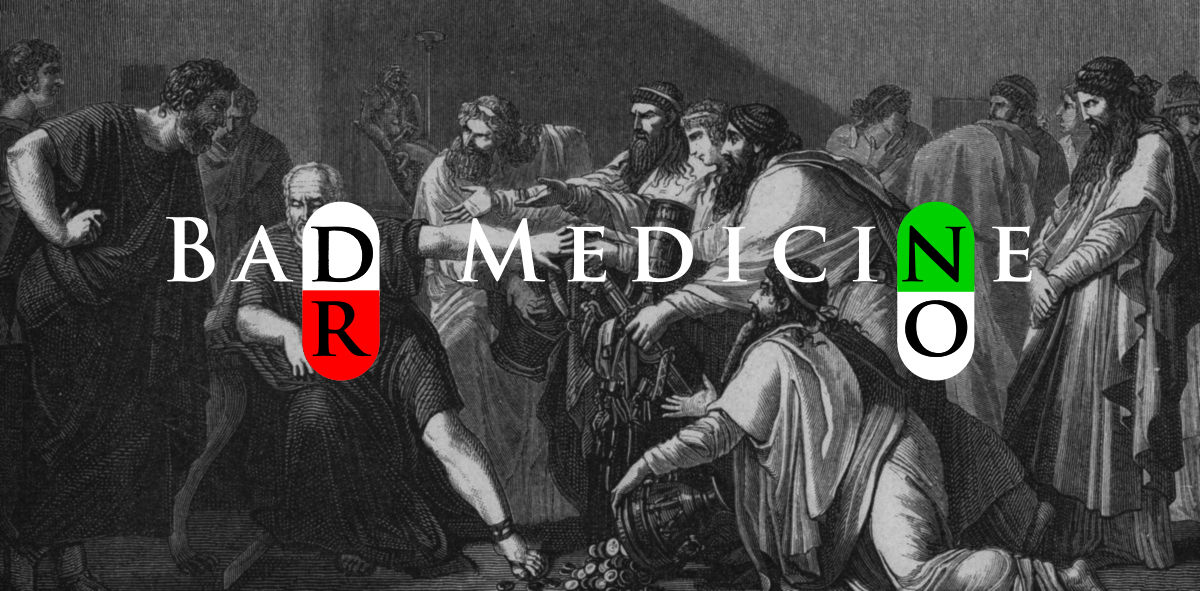What’s Love Got to Do With It

As the four horsemen of the apocalypse gather to ride through our hospital wards, we are about to see a collision between the brutality of the covid-19 epidemic and the Easter message of deliverance and hope. Across the Christian world, the very reverent are even now penning sermons to be live-streamed over the Easter weekend. Those that manage to avoid setting fire to themselves or activating the wrong sort of video filter will Dr No expects focus on the message that while media vita in morte sumus, there is beyond sure and certain hope of the resurrection. Never mind the divine escape hatch buried in that wonderful familiar phrase — the noun is hope, sure and certain merely adjectival flummery — there can be no doubt that the over-arching message will be one of sure and certain deliverance from the evils of plagues.
No such confidences are to be found among the furrowed brows of our scientific brethren. Instead we have forecasts that, left unchecked, the four horsemen will grow in number, and gather in pace, until a great darkness descends on the land. Faced with the numerology, our leaders have taken drastic steps in desperate times. Inalienable rights, like the right to gather in groups, have been alienated. Dr Lazarus has been resurrected (of that we can be sure and certain), to fight, if not on the wards and in the corridors, then in the telephone triage booths. The butcher, the baker and the candle stick maker, and a few others, can still trade, but the rest of the economy has had the rug of commerce pulled sharply from under it. Distress rockets packed full of funny money have been fired with reckless abandon, only to fall short. The unprecedented down-heaval and dystopia of lock down is increasingly seen by many as both dangerous and despotic, an economic own goal of biblical scale.
And yet, in the short term, lock down does make sense, to protect the NHS from implosion. If we can reduce the number and pace of those dread four horsemen, we not only reduce the numbers daily assaulting the health service, we also buy time to ramp up the reinforcements. And yet there is a flaw. If the epidemic curve is like a water filled balloon, then the harder we sit on the top, the more it bulges out elsewhere. All lock down can ever do is delay. Delay is good, even essential, but let us not fool ourselves. That which we delay today comes back to bite us tomorrow. At its worst that balloon could one day rupture, and the ensuing flood overwhelm us just as surely as if we had had left the balloon alone in the first place.
The stark fact is that there is only one, to coin a tired phrase, exit strategy, and that is herd immunity. Even that is not without potential pitfalls, like viral mutation, but let us not imagine trouble while there is as yet no proof. But once the inevitable importance of immunity is accepted, we move from stark fact to stark choice. How do we go about getting to herd immunity?
There are only two choices. The first is through vaccination, but that relies on developing a vaccine, but that takes time (of that too we can be sure and certain, because of the number of sequential steps need to develop a safe effective vaccine). The second choice is the lie back, think of England and catch the virus approach, espoused from time to time by the shadowy numerologist in a cardie, Professor Graham Medley.
Medley’s first outing was on Newsnight in the middle of last month, where he wind-bagged his way through the regrettable impossibility of ‘a nice big epidemic in Kent’ once the vulnerable had been evacuated to the north of Scotland (where they might just die of hypothermia). Nonetheless, for a brief 24 hours or so, herd immunity through natural infection flashed in the official pan of deliverance, until some brighter spark spotted the fact that herd immunity through natural infection was also herd immunity through natural selection, and meant, even at low mortality rates, very large numbers of deaths. Given upwards of some 50 million people in the UK would need to be infected, and a 1% mortality, there would be 500,000 folk who would need to lie back, think of England, and never get up again. Overnight, the Prof in a cardie turned into Dr Mengele in a cardie, discredited and discarded.
And then, only yesterday, The Times resurrected (of that we can be sure and certain) Dr Mengele in cardie. Though tucked behind a paywall, most other newspapers reported the Angel of Death’s grim tolling. A Daily Wail article garnered a staggering 7000 and more comments, with many saying they hoped the Prof would be among the first to get inphected (sic), and he could see how he liked it then.
And yet, there is a grim inevitability about the grim tolling. Only a few paragraphs ago, we noted that herd immunity through infection is currently the only realistic way though this epidemic, and likely to remain so for the foreseeable future. What this means, Dr No suggests, is that we need a controlled explosion. Such approaches are inherently dangerous, indeed ‘controlled explosion’ is close to an oxymoron, but it does offer a route through the epidemic, which draconian lock down, with the untold social and economic devastation it entails and with no end in sight, does not.
If we are to adopt this approach, and Dr No is increasingly persuaded it is the only rational option, then we must be constantly mindful of the over-arching importance of a wise counsel from the King James Bible: “And now abideth faith, hope, charity, these three; but the greatest of these is charity.” We must have confidence in our reasoning, and be confident in our conduct, but above all else we must show charity, or, as more recent translations have it, love.
What does this mean in practise? It means that over and above everything else we must show humanity to those most at risk. All the negative energy currently being deployed in shutdown must instead be diverted to the positive energy of protection for the most vulnerable. The fire crackers of funny money must be redeployed as real money to shore up the humane quarantine of those most at risk. Effective yet humane quarantine will, by focusing most on those at risk, lead to a reduction in case load for the NHS, without the need for ongoing and crippling lock down. Indeed, it is not inconceivable that, by focusing on those most at risk of severe illness, it may even be more effective than across the board shutdown in reducing the NHS case load. The vulnerable who do succumb need, subject to the normal caveats of sensible medical practice, the best that medicine can offer them.
Professor Medley’s big mistake, and of course in this he is not alone, was to rule out from the beginning aggressive but above all humane targeted quarantine of those most at risk. Without this vital addition to strategy, all he had to offer us was blood, toil, tears and deaths, on an unimaginable scale. It is no surprise that few if any warmed to what he had to offer.
So, to answer the question posed at the top of this post, what’s love got to do with it, the answer is everything. If the only rational way through this epidemic is to accept Professor Medley’s programme for easing the lock down and gaining herd immunity through natural infection, then love is the essential strategic addition, the vital antidote to prevent the Medley strategy inevitably becoming an accidental Aktion T4 programme.
